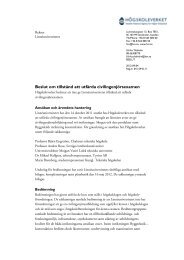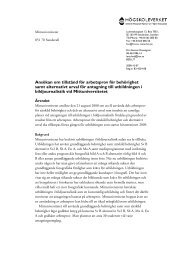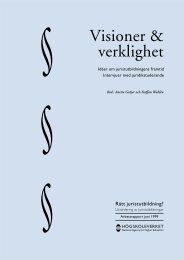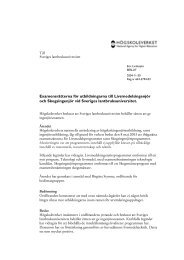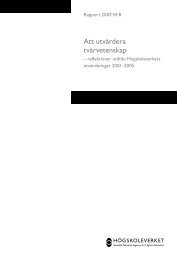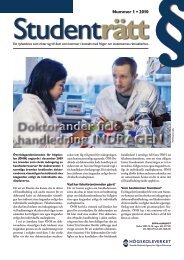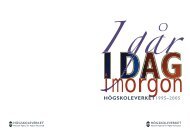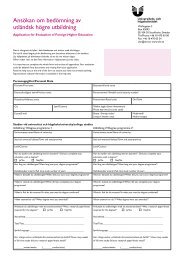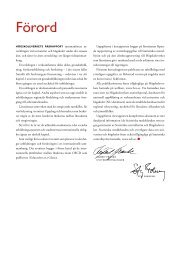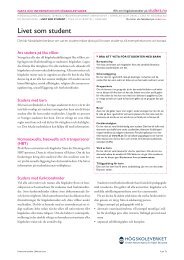Rapport 1997/29 R (L kar) - Högskoleverket
Rapport 1997/29 R (L kar) - Högskoleverket
Rapport 1997/29 R (L kar) - Högskoleverket
Create successful ePaper yourself
Turn your PDF publications into a flip-book with our unique Google optimized e-Paper software.
10<br />
Summary<br />
Basic training for doctors of medicine in Sweden – five and a half years of<br />
university study – meets high international standards. Its objectives work<br />
well and are widely accepted, requiring only minor adjustments. It also has<br />
highly-motivated students and teachers with a high level of professional<br />
competence in both research and practical medicine.<br />
According to an international comparative study the clinical aspects of the<br />
training are characterized by the students having constant contact with<br />
patients and participating in clinical activities. It is further characterized by<br />
smoothly functioning cooperation between the universities and local health<br />
care agencies. Students of all faculties are on the whole satisfied with the<br />
training they receive. They also feel they are adequately prepared for their<br />
pre-registration period as house officers, a period of salaried probation<br />
lasting 21 months.<br />
The students are well represented in decision-making bodies and they are in<br />
a good position to raise individual issues, to shape opinion in relation to<br />
them and to influence the decisions reached. The education system,<br />
characterized by decentralization and management by objectives, has the<br />
capacity to learn from international and national development trends and to<br />
initiate development processes. After their basic training, generally speaking,<br />
the students are well able to follow developments in their field and to<br />
participate in the exchange of information at a scientific level. They have the<br />
knowledge and skills that are necessary for completing their pre-registration<br />
period of salaried probation and that lay a foundation for their practice of<br />
medicine. Even though the training given is good, generally speaking, there<br />
are a number of critical points. In recent years every faculty of medicine has<br />
devoted a great deal of effort to improving plans for both particular courses<br />
and for training as a whole at the basic level. All faculties have initiated<br />
changes intended to reduce the shortcomings that present in medical<br />
training. Outdated forms of passive learning are being replaced to an<br />
increasing extent by modern pedagogical ideas.



